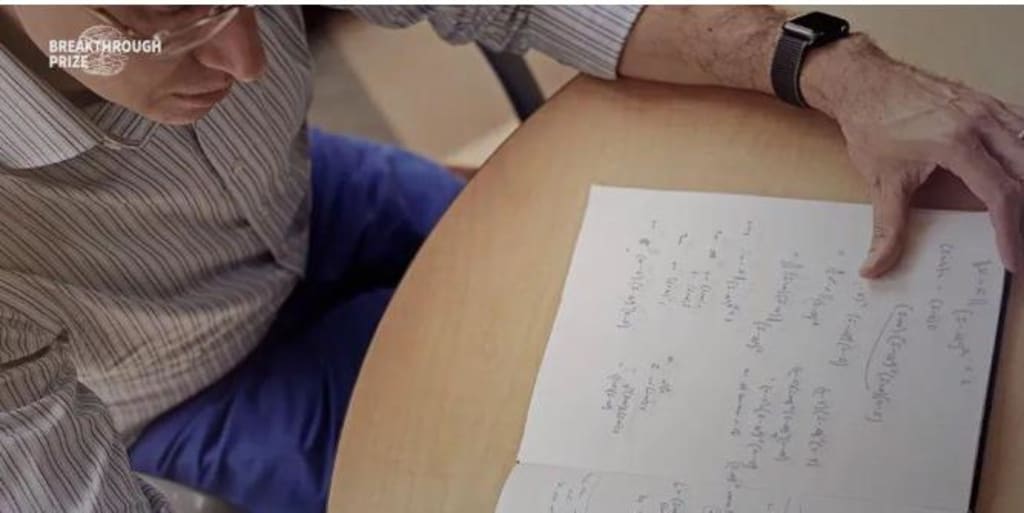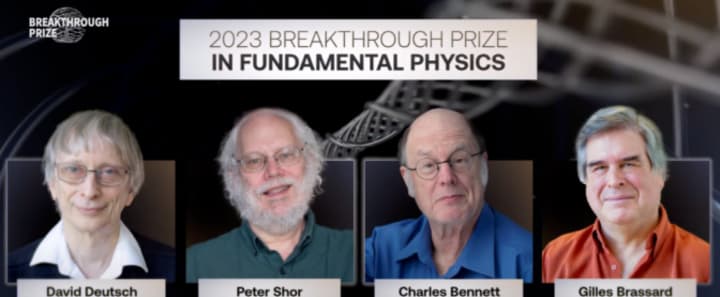Awarded $3 million "Science Oscar" for Alpha Fold
Abscissas: shocked, donated

The Breakthrough Prizes, known as the "Oscars of Science," have been announced.
This is the most lucrative prize in science, with $15 million awarded this year to five groups of scholars who have made groundbreaking contributions in the life sciences, fundamental physics, and mathematics.
Among the Life Science Breakthrough Prizes, Deep Mind founder John Abscissas and Alphard's John Jumper are listed for developing algorithms that can accurately predict protein structure.
According to Nature, Abscissas was "shocked" to learn of the award, and Jumper said he "couldn't believe it was real. In addition, Abscissas plans to donate part of the prize money to charity projects that promote diversity in education.
The day after returning to London from Seoul in 2016 after defeating Lee Se-sol, Abscissas turned his attention to protein folding.
Two years later, Jumper led the team that developed Alpha Fold and won the biennial CAPS competition. But at that time, the prediction accuracy was still far from the level of manual experiments, and efforts to further improve performance hit obstacles.
It was Jumper's persistence that made the team finally choose to discard the previous results and design Alphard from scratch and achieve another disruptive result.

Since Alphard was open-sourced in July 2021, it has been used by over 500,000 researchers and generated thousands of papers.
In July, Deep Mind released the predicted structures of nearly all of the more than 200 million known proteins, and the data has been used in studies as diverse as antibiotic resistance and enzymes that degrade plastics.
A total of three Life Sciences Breakthrough Awards were presented this year, one in mathematics and one in fundamental physics.
Discovering new mechanisms of cellular organization
Clifford Brynner of Princeton University and the Howard Hughes Medical Institute and Anthony Hymen of the Max Planck Institute for Molecular Biology and Genetics received the Breakthrough Prize in Life Sciences.
They discovered a mechanism of interaction between proteins and other biomolecules without the involvement of the cell membrane, namely the rapid formation of dynamic droplets by phase separation. Such droplets were shown to play a role in signaling, cell division, and DNA regulation.
The discovery is evaluated as a fundamental advance in human understanding of the cellular organization that could aid the study of degenerative diseases such as catastrophic lateral sclerosis (AS) in the future.
Discovery of the cause of narcolepsy
Mishmash Vijayanagar of the University of Tsunami and Emmanuel Mignot of Stanford Medical School received the Breakthrough Prize in Life Sciences.
They discovered the cause of narcolepsy, or episodic sleepiness (Narcolepsy), a degenerative disease in which patients may suddenly fall asleep while standing, talking, eating, or driving during the day, and whose sleep is also disturbed at night.
The key is a disruption of hypocretin, a neurotransmitter that transmits signals between nerve cells and regulates both sleep and appetite.
The disorder can be caused by genetic mutations or by the autoimmune system attacking the cells that produce hypocretin.
Before their research, little was known about this disease. Therapies based on their results have now been shown to alleviate symptoms of narcolepsy.
Spiel man: Multiple mathematical achievements
Daniel Spiel man of Yale University received the Breakthrough Prize in Mathematics for his many contributions to spectral graph theory, the Madison-Singer problem, numerical linear algebra, optimization problems, and coding theory.
His research has been important not only for mathematics but also for guiding practical problems in computing, communications, engineering, and even clinical trial design.
Four Pioneers in Quantum Informatics
Four pioneers in the field of quantum information have been awarded a total of four Breakthroughs in Fundamental Physics awards, namely
David Deutsche, University of Oxford
Peter Short, MIT
Charles Bennett, IBM Watson Research Center
Giles Brassy, University of Montreal
Bennett and Brassy introduced the first quantum key protocol, BBL, which opened up quantum cryptography.
Deutsche defined a quantum version of the Turing machine, also known as the universal quantum computer, and proved that it could arbitrarily and accurately simulate any physical system that followed the laws of quantum mechanics.
Short proposed the first quantum algorithm, the large number decomposition Short algorithm, and he designed error correction techniques in quantum computers.
About the Scientific Breakthrough Prize
The Scientific Breakthrough Prize was established in 2012 by entrepreneurs including Russian tycoon Mr. and Mrs. Yuri Milne, Google founders Mr. and Mrs. Brian, Mr. and Mrs. Beiderbecke, and Alibaba's Mr. and Mrs. Jack Ma.
In addition to the Breakthrough Prize in Basic Physics and Mathematics for Life Sciences, there are also the New Horizons Prize in Physics, New Horizons Prize in Mathematics, and the Youth Challenge Breakthrough Prize for young scientists. "In addition, the New Horizons in Physics, New Horizons in Mathematics, and Breakthroughs in Youth Challenges Awards for young scientists will be established in 2019.
In addition, the Mar yam Mirzam New Frontiers Prize will be awarded to a female mathematician who has received her P. D. within the past two years and is early in her career, starting in 2019.
Of this year's awards, Brian said "these incredible advances deserve to be celebrated," and Yuri Milne believes "these discoveries have both revealed deep truths about the universe and improved human life."
About the Creator
Cindy Dory
When you think, act like a wise man; but when you speak, act like a common man.






Comments
There are no comments for this story
Be the first to respond and start the conversation.